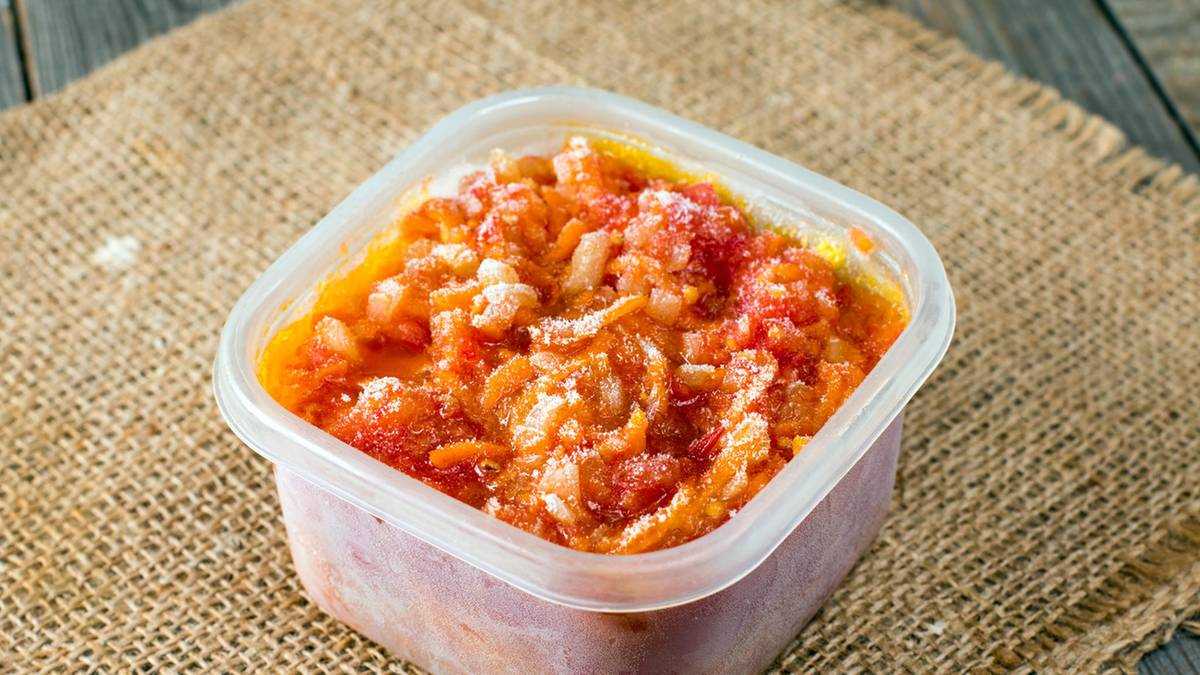Freeze pasta: Here's how
- If you know beforehand that you want to freeze the pasta, you should cook at most al dente – this way they don't get so mushy after thawing.
- To prevent the pasta from sticking together, you can use it after cooking swirl in oil.
- Leave the noodles cool completely and fill them in portions into freezable cans or bags.
- Write down the freeze date and then put the pasta in the freezer. They are frozen shelf life for about three months.
Thaw frozen pasta
- The easiest is the noodle in the microwave to defrost again. To do this, moisten it with a little water and then heat it for two to three minutes.
- Alternatively, you can boil water in a saucepan and the noodles Pour in frozen. However, do not cook them too long so that they do not become so soft.
- Also delicious: the Fry the pasta in a pan and prepare a chop pan from it, for example.
Tip: Thawed pasta is ideal for a casserole or noodle soup, because it is not so bad with these dishes if the noodles are a bit mushy.
Freeze pasta with sauce
Whole pasta dishes such as pasta with tomato sauce (or with pesto) or pasta bake can also be frozen. You can do it afterwards warm up directly in the sauce, but you have to reckon with the fact that the noodles are no longer firm to the bite, but taste relatively sticky.
Shelf life of pasta
Cooked pasta is kept in the fridge three days maximum, so freezing is often the better storage option. Dry pasta, on the other hand, can be kept for two years – as long as it lasts do not come into contact with moisture and start to mold, they basically have no expiration date. Fresh pasta, usually made with egg, must be stored refrigerated and usually has a shelf life of only about 30 days. Here you should stick to the best-before date on the packaging.
We have other recipes for pasta dishes, such as ravioli, and we explain how you can make pasta yourself and cook spaghetti.
